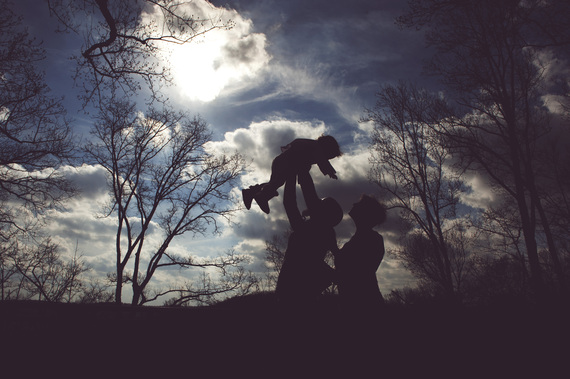About a year ago, I learned about some "worrisome" spots that had shown up on my quarterly CT scan. This was about six months after my last of 24 chemotherapy infusions, and to say I was bummed upon hearing the news would be an understatement. But I slowly wrapped my brain around the notion of a "third option" relating to cancer, the third option being something between permanent remission from cancer... and death.
Now the thought of just "learning to live with" cancer was unappealing then and is unappealing now. Of course, I (and anyone else without a death wish) would prefer to live a long life, free of illness and disease, without the scepter of cancer hanging over my head. But as a couple of wise blokes named Mick Jagger and Keith Richards once wrote, you can't always get what you want.
Over the course of the past year, I and my oncology team have watched and monitored those worrisome nodules, hoping they'd either go away or at least remain unchanged. The nodes were too small and scattered to biopsy; but since cancer rarely remains completely stagnant, the thought was that if they didn't grow, they likely weren't cancer. Unfortunately, they grew. Not at an alarming rate, but slowly and steadily they grew. And just as slowly and steadily, my CA125 (cancer marker) levels crept upward.
My family and I watched and waited, hoping for the best but fearing the worst, until a couple of weeks ago, my oncologist called me in for the hard conversation.
"Given the growth of these nodules over the past several months, and the increase in your CA125 levels, we do believe your cancer has returned."
As difficult as this was to hear, I have to say I wasn't surprised. I had never rested easily with the knowledge of those mysterious nodules inside me, not even for a day. In my heart of hearts, I think I always knew they were dangerous. I'd hoped with every fiber of my being I was wrong, but my gut told me my fears were well placed.
I did, however, question the use of the terminology about my cancer having "returned." Because even though I was told at the end of treatment more than 18 months ago that my scans and blood work showed "no evidence of disease", we've essentially been watching these spots for more than a year. So my cancer hasn't actually returned. The truth is, my cancer likely never left. When I pressed my oncologist about this, she acknowledged that I was correct. The nodes on my CT scan were now simply large enough to see. However, they'd likely been there all along.
Cancer.org published a helpful informational paper about recurrent cancer, describing how sometimes small clusters of cancer cells that could not be seen or found on scans or other tests, grow large enough over time to be detected or cause symptoms. While I'm not yet experiencing symptoms as a result of the nodules in my pelvic region -- they're still too small -- they are definitely now detectible and need to be addressed.
Right now the plan is for me to resume chemotherapy after the first of the year. And this time I'll likely be on some form of chemo drug for the rest of my life or until there's a cure. The thought of this both exhausts and terrifies me. I don't want to die. My daughter just turned two. I want to be around to see her grow up. I want to grow old with my husband. I'm not ready to go anytime soon... not by a long shot. So I'm scared and even a little angry.
Aside from processing these feelings, exploring treatment options and second opinions, and learning to cope with the stress and anxiety that came with this news, I'm also learning to reframe my thinking about cancer as a recurrent disease. I can no longer look myself in the eye and tell myself with 100 percent certainty that "this time" I'm going to beat cancer for good. In actuality, the cancer will likely continue to crop up, just hopefully with longer periods of time with no detectible activity between "episodes."
While I strongly dislike the thought of this, I also have to acknowledge that many people live long lives with recurrent, incurable disease. Those with rheumatoid arthritis, diabetes, COPD, severe asthma and even HIV, all learn to manage their symptoms with medication, diet, exercise and other lifestyle changes and therapies, and deal with flare-ups as necessary when they occur.
I remember when an HIV/AIDS diagnosis was considered a death sentence. And it was. I lost several friends to the disease in the late 1980s and early 1990s, before the advent of the "AIDS cocktail" of antiretroviral therapy. Today HIV/AIDS is manageable, and considered a chronic illness rather than a fatal one. Turns out, many cancers fall into the same category.
I have to wrap my mind around the fact that, unless a cure is discovered in my lifetime, cancer is going to be part of my life for the rest of my life. Cancer is my herpes. Or my diabetes or RA or COPD. It's in me and I am going to have to accept it and learn to manage and dominate it. I want to live a long life, so in my mind, I have no other choice.
Image via Brooke Kelly Photography
